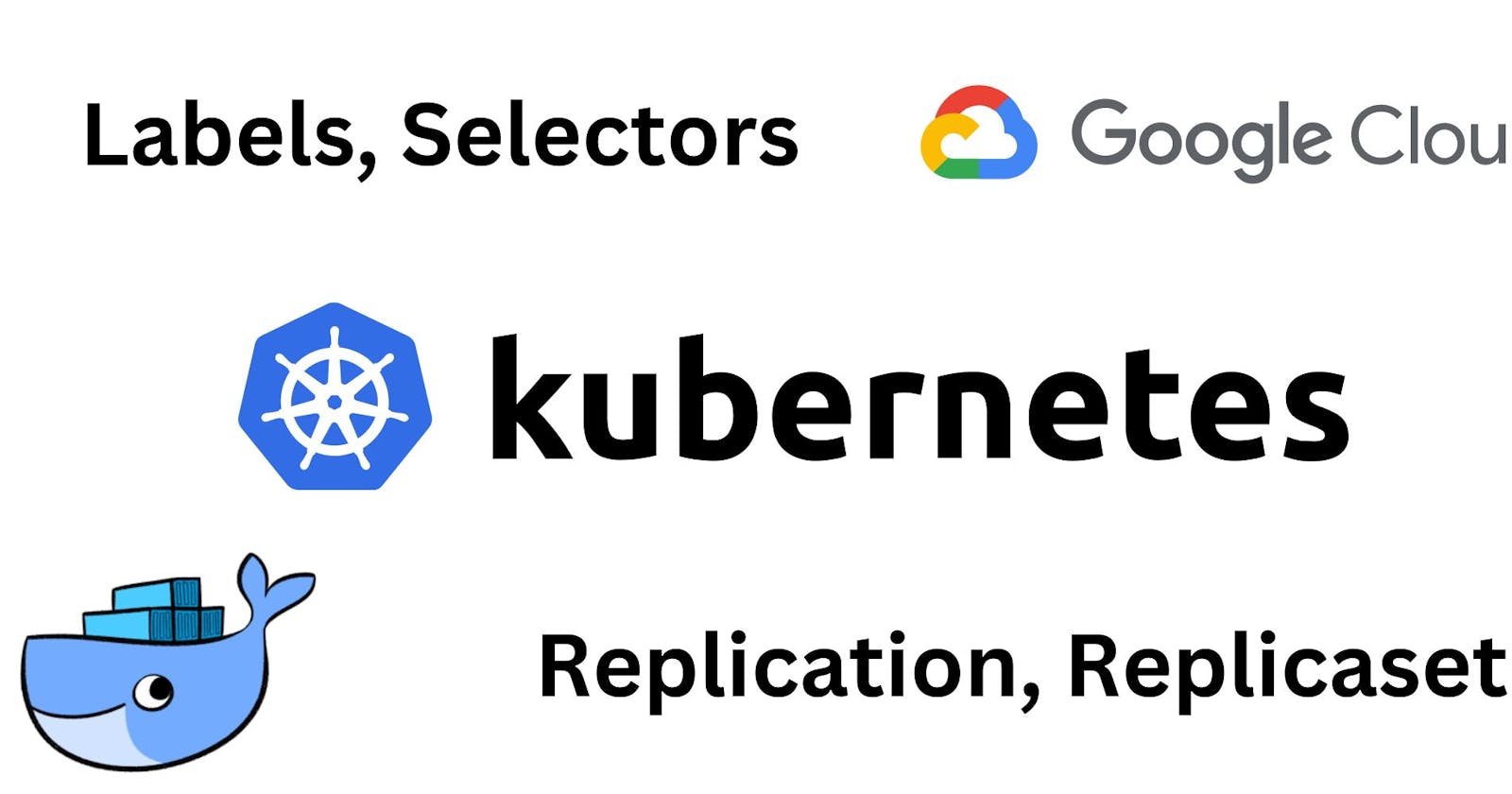Labels
Labels are the mechanism you use to organize Kubernetes Objects.
A label is a key-value pair without any predefined meaning that can be attached to the objects.
Labels are similar to tags in AWS or git where you use a name for quick reference.
So we are free to choose labels as we need them to refer to an environment that is used for dev or testing or production, refer a product group like department A, or department B.
Multiple labels can be added to a single object.
kind: Pod
apiVersion: v1
metadata:
name: delhipod
labels:
env: development
class: pods
spec:
containers:
- name: c00
image: ubuntu
command:
[
"/bin/bash",
"-c",
"while true; do echo Hello DevOps; sleep 5 ; done",
]
kubectl apply -f pod5.yml
kubectl get pods --show-labels
Now if you want to add a label to an existing pod
kubectl label pods delhipod myname=tushar
kubectl get pods --show-labels
Now, list pods matching a label
kubectl get pods -l env=development
Now, give a list, where 'development' label is not present
kubectl get pods -l env!=development
Now, if you want to delete pod using labels
kubectl delete pod -l env!=development
kubectl get pods
Label-selector
Unlike name/UIDs, labels do not provide uniqueness, as in general, we can expect many objects to carry the same labels.
Once labels are attached to an object, we would need filters to narrow down and these are called as label selectors.
The API currently supports two types of selectors - Equality based and set based.
A label selector can be made multiple requiremnents which are comma-separated.
Equality based:
(=,!=)
name: tushar
class: nodes
project: development
Set based:
(in, notin and exists)
env in (production, dev)
env notin (team1,team2)
Kubernetes also supports set-based selectorrs i.e match multiple values.
kubectl get pods -l 'env in (development, testing)'
kubectl get pods -l 'env notin (development, testing)'
kubectl get pods -l class=pods,myname=tushar
Node-Selector
One use case for selecting labels is to constrain the set of nodes onto which a pod can schedule i.e you can tell a pod can schedule i.e you can tell a pod to only be able to run a particular nodes.
Generally such constraints are unnecessary as the scheduler will automatically do a reasonable placement, but on certain circumstances we might need it.
We can use labels to tag nodes.
You the nodes are tagged, can use the label selectors to specify the pods run only of specific nodes.
first we give label to the node.
Then use node-selector to the pod configuration.
kind: Pod
apiVersion: v1
metadata:
name: nodelabels
labels:
env: development
spec:
containers:
- name: c00
image: ubuntu
command:
[
"/bin/bash",
"-c",
"while true; do echo Hello-Bhupinder; sleep 5 ; done",
]
nodeSelector:
hardware: t2-medium
kubectl get nodes
kubectl label nodes nodename hardware=t2-medium
Scaling and Replication
Kubernetes was designed to orchestrate multiple containers and replication.
Need for multiple containers/replication helps us with these:
### - Replication:
- if we add replicas=2 in config file then it will create two pods of same kind on one node.
- if one pod fails second pod will continue as a backup pod.
- Reliability:
- By having multiple versions of an application, you prevent problems if one or more fails.
- Load Balancing:
- Having multiple versions of a container enables you to easily send traffic to different instances to prevent overloading of a single instance or node.
- Scaling:
- When load does become too much for the number of existing instances, kubernetes enables you to easily scale up your application, adding additional instances as needed.
- Rolling updates:
- Updates to a service by replacing pods one by one.
Replication Controller
A replication controller is a object that enables you to easily create multiple pods, then make sure that number of pods always exist.
If a pod created using RC will be automatically replicated if they does crash, failed, or terminated.
RC is recommended if you just want to make sure 1 pod always running, even afte system reboots.
You can run the RC with 1 replica & the RC will make sure the pod is always running.
apiVersion: v1
kind: ReplicationController
metadata:
name: nginx
spec:
replicas: 3
selector:
app: nginx
template:
metadata:
name: nginx
labels:
app: nginx
spec:
containers:
- name: nginx
image: nginx
ports:
- containerPort: 80
- name: C00
image: ubuntu
command: ["bin/bash", "-c", "echo Hi"]
Replica Set
Replica Set is a next generation of replication controller.
The replication controller only supports equality-based selector whereas the replica set supports set-based selector i.e filtering according to set of values.
Replicaset rather than the replication controller is used by other objects like deployment.
apiVersion: apps/v1
kind: ReplicaSet
metadata:
name: nginx
spec:
replicas: 3
selector:
matchExpressions:
- {key: myname,operator: In,values: [Tushar,Tush,Tusha]}
- {key: env,operator: NotIn,values: [production]}
app: nginx
template:
metadata:
name: nginx
labels:
app: nginx
myname: Tush
spec:
containers:
- name: nginx
image: nginx
ports:
- containerPort: 80
- name: C00
image: ubuntu
command: ["bin/bash","-c","echo Hi"]
kubectl apply -f myrs.yml
kubectl get rs
kubectl scale --replicas=1 rs/myrs

